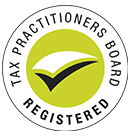
Finalist

Group Award – Network of the Year:
Ab2 Institute of Accounting
Discover World-Class Accounting and Bookkeeping Courses for Every Stage of your Career
Growing minds, building careers
Growing minds, building careers
0
Enrolled Students
0
Firms
0
Countries
Top picks
Take your career to the next level
FNS40222
The industry-sought Certificate IV, covers all key accounting and bookkeeping competencies including BAS, financial reports, payroll and software.
FNSSS00004
Join the national BAS register with expert training in business activity, instalment activity, and payroll system maintenance.
FNS30317
The next step on the path towards the Certificate IV in Accounting and Bookkeeping – hone your fundaments with payroll systems, computer accounting and more.
FNS50217
Expand on your pre-existing accounting skills with comprehensive training in taxation, budgeting, business performance, and financial forecasts.
FNS50417
Specialise in payroll services with an in-depth course on payroll mechanics as well as managing packaging arrangements, superannuation, and terminations.
FNSSS00005 & FNSSS00008
Master tax and its legislation in the Australian industry with training on individual and corporate documentation, as well as regulations and systems.
Who is Ab2?

With over 1,000 global business partners and more than 3,400 team members, along with sister company TOA Global, we’ll connect you with well-respected SMEs in the global marketplace

Fast, flexible, and recognized accounting training and qualifications specific to current needs in North America, Australia and New Zealand

Training offered by real accountants, not academics
Our Industry Partners



Let's connect
We’re here to make learning accessible. Several study options exist (online, face-to-face, or hybrid)
with corresponding payment plans available on a course-by-course basis.
with corresponding payment plans available on a course-by-course basis.
Click the button below to send a message



















